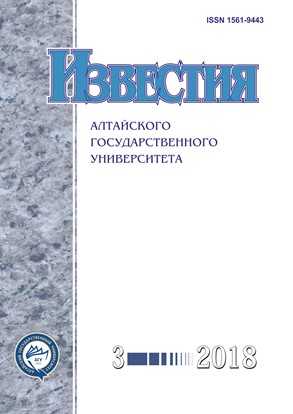The Subject and the Objects of the Constitutional Regulation
Abstract
At the assessment of the efficiency of constitutions, the consideration should be given to the quality of the regulating and legal material which is contained in them and also their influence on dynamics of statehood and stability of the state. The Constitution of the Russian Federation played an important role in stabilization of political system, introduction of the legal basis of the constitutional statehood and advancing of law-based governance. With the development of the state there is an objective need to introduce amendments to the Constitution which is caused by improvement of constitutionalism practice, change of approaches to definition of limits and depth of the constitutional regulation of the public relations. At the same time, the Constitution of the Russian Federation reveals significant flaws in the doctrinal, formal-logical and technical-legal nature, conditioned by its transitional character
For a number of fundamental positions, it enters an insoluble contradiction with the new strategic guidelines for the state and social development of Russia, which are formalized in modern conditions. This circumstance is an incentive for broadening public discussion about the choice of the optimal model of the constitution. The author believes that in relation to the constitution, and also to the legal branches, the parallel use of legal constructions of the subject and object is not only appropriate, but also desirable both for the applied and scientific cognitive purposes. The article analyzes the approaches to determination of further prospect of the existing Constitution of Russia.
DOI 10.14258/izvasu(2018)3-11
Downloads
Metrics
References
Американские просветители. Избранные произведения в 2 т. Т. 2 / под общ. ред. Б.Э. Быховского. — М., 1969.
Авакьян С.А. Конституционное право России. Учебный курс : учебное пособие: в 2 т. — 4-е изд., пере-раб. — М., 2010.
Конюхова И.А. Конституционное право Российской Федерации. Общая часть : курс лекций. — М., 2006.
Лукьянова Е.А. Еще раз о предмете конституционного права с позиции нового тысячелетия // Конституционное и муниципальное право. — 2010. — № 1.
Чиркин В.Е., Хабриева Т.Я. Теория современной конституции. — М., 2005.
Егорова Н.Е. К вопросу о предмете правового регулирования федерального закона как источника конституционного права России // Журнал российского права. — 2009. — № 11.
Юридический энциклопедический словарь. — М., 1984.
Билык О.О. Конституционный характер политики Банка России как объекта государственно-правового регулирования // Банковское право. — 2006. — № 4.
Геворкян М.В. Понятие экономической деятельности как объекта конституционно-правового регулирования // Конституционное и муниципальное право. — 2011. — № 11.
Савченко Н.А. Земля как вид недвижимости в качестве объекта конституционного регулирования // Правовые вопросы недвижимости. — 2014. — № 1.
Кудинов В.В. Государственная граница Российской Федерации как объект конституционно-правового регулирования в сфере обеспечения безопасности государства // Конституционное и муниципальное право. — 2008. — № 21.
Шустров Д.Г. Государство как объект конституционно-правового регулирования // Конституционное и муниципальное право. — 2012. — № 5.
Кондратьева М.А. Политические отношения в предмете конституционного права // Конституционное и муниципальное право. — 2010. — № 7.
Васюкова И.А. Словарь иностранных слов. — М., 2001.
Философский энциклопедический словарь. — М., 1983.
Ожегов С.И., Шведова Н.Ю. Толковый словарь русского языка. — М., 1999.
О структуре федеральных органов исполнительной власти : Указ Президента РФ от 21.05.2012 № 636 // Собрание законодательства РФ. — 2012. — № 22. — Ст. 2754.
Невинский В.В. Основы конституционного строя. Обеспечение достоинства личности. Конституционные принципы публичной власти : избранные труды. — М., 2012.
Аничкин С.С. Преобразование Конституции Российской Федерации и развитие конституционного законодательства в конце XX — начале XXI в. — М., 2010.
Авакьян С.А. Стране нужна новая Конституция // ЭЖ-Юрист. — 2007. — № 50.
Авакьян С.А. Гарантированное народовластие // Независимая газета. — 2012.— 16 окт.
Зорькин В.Д. Россия и Конституция в XXI веке. Взгляд с Ильинки. — М., 2007.
Осейчук В.И. О необходимости нового этапа конституционной реформы в России // Конституционное и муниципальное право. — 2006. — №5.
Старилов Ю.Н. Будущее Конституции Российской Федерации: «реализация без изменений», «преобразование» или «неизбежность пересмотра»? // Право и политика. — 2005. № 1-2.
Чиркин В.Е. К вопросу о точности конституционной терминологии // Журнал российского права. — 2011. — № 2.
Михалева Н.А. Конституция 1993 г. — юридическая модель настоящего и будущего России // Lex russica. — 2013. — № 12.
Copyright (c) 2018 Ю.В. Ким

This work is licensed under a Creative Commons Attribution 4.0 International License.
Izvestiya of Altai State University is a golden publisher, as we allow self-archiving, but most importantly we are fully transparent about your rights.
Authors may present and discuss their findings ahead of publication: at biological or scientific conferences, on preprint servers, in public databases, and in blogs, wikis, tweets, and other informal communication channels.
Izvestiya of Altai State University allows authors to deposit manuscripts (currently under review or those for intended submission to Izvestiya of Altai State University) in non-commercial, pre-print servers such as ArXiv.
Authors who publish with this journal agree to the following terms:
- Authors retain copyright and grant the journal right of first publication with the work simultaneously licensed under a Creative Commons Attribution License (CC BY 4.0) that allows others to share the work with an acknowledgement of the work's authorship and initial publication in this journal.
- Authors are able to enter into separate, additional contractual arrangements for the non-exclusive distribution of the journal's published version of the work (e.g., post it to an institutional repository or publish it in a book), with an acknowledgement of its initial publication in this journal.
- Authors are permitted and encouraged to post their work online (e.g., in institutional repositories or on their website) prior to and during the submission process, as it can lead to productive exchanges, as well as earlier and greater citation of published work (See The Effect of Open Access).








